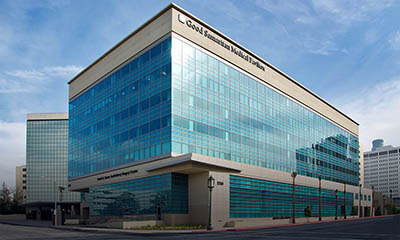Sinus infections, or sinusitis, occur when the sinuses—air-filled cavities around the nose and forehead—become inflamed due to viral, bacterial, or fungal infections. This inflammation blocks mucus drainage, leading to discomfort and various symptoms. Sinus infections can be acute, lasting under four weeks, or chronic, lasting 12 weeks or longer.
How to Recognize a Sinus Infection
Sinus infections can easily be confused with colds or allergies, but there are key symptoms that set sinusitis apart:
Symptoms of Swollen Adenoids
Swollen adenoids can cause a variety of symptoms, such as:
- Facial pain or pressure – Tenderness around the eyes, forehead, and nose, which worsens when bending forward.
- Nasal congestion – Persistent stuffiness that doesn’t improve with typical decongestants.
- Thick nasal discharge – Yellow or green mucus, unlike the clear discharge from a cold.
- Post-nasal drip – Mucus drainage into the throat, often causing a cough.
- Headache – Sinus pressure triggering headaches, particularly in the morning.
- Fever – A low-grade fever may accompany a sinus infection.
- Fatigue – Chronic sinusitis can make you feel unusually tired.
If you’ve had symptoms for over 10 days or your symptoms worsen, you may have a sinus infection requiring further attention.
Managing Sinus Infections
Mild sinus infections often improve with home care:
- Steam inhalation – Breathing steam can open nasal passages and ease congestion.
- Nasal saline spray – Rinsing the nasal cavity with saline reduces inflammation.
- Hydration – Drinking plenty of fluids helps thin mucus.
- Warm compress – Applying a warm cloth to the face relieves sinus pressure.
Over-the-Counter Medications
- Decongestants – Medications like Sudafed can reduce nasal swelling, but limit use to avoid rebound congestion.
- Pain relievers – Ibuprofen or acetaminophen can help with sinus pain and fever.
- Antihistamines – If allergies are triggering sinus issues, antihistamines may reduce inflammation.
If symptoms persist or worsen, professional treatment may be necessary:
- Antibiotics – Prescribed if a bacterial infection is diagnosed.
- Nasal corticosteroids – Reduce nasal inflammation, particularly for chronic sinusitis.
- Balloon sinuplasty – A minimally invasive procedure to open blocked sinuses for better drainage.
- Endoscopic sinus surgery – In severe cases, surgery may be necessary to remove blockages or fix structural issues.
When to Seek Medical Help
Consult an ENT specialist if:
- Symptoms last more than 10 days.
- You have frequent sinus infections.
- There’s severe facial swelling or vision changes.
Take Control of Your Sinus Health
Sinus infections can be uncomfortable, but the right care brings relief. If you’re dealing with chronic sinus issues, contact our clinic to explore personalized treatment options.

























